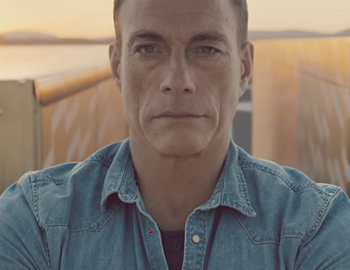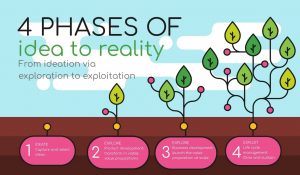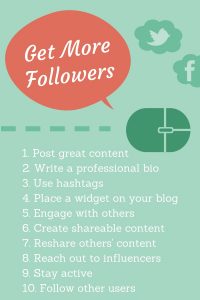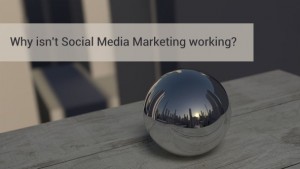
You’ve seen how incredibly effective content marketing can be at encouraging leads to move through the funnel, from first touch to closed sale.
But what about video content marketing?
In this modern, video-mad world, if you’re not integrating video comprehensively into your content marketing strategy then you’re missing out on a powerful way to engage your target audience.
(And not just engage, but also attract and draw them down your marketing funnel.)
I’m going to show you three incredible examples of video content marketing being used by big-name brands and businesses to guide leads, breadcrumb-style, from awareness to consideration to decision and beyond — in ways that other types of content just can’t.
These aren’t just lonely, one-off pieces of video content or single campaigns. This is proper video content marketing, planned effectively alongside all your other content and baked into your whole marketing strategy at each stage of the funnel.
Let’s see how they do it. Here are 3 magnificent examples of video content marketing done right.
What is Great Video Content Marketing?
Before we dive in, let me explain how I chose these 3 examples.
These were my criteria for an exemplary video content marketing campaign, which I believe all of the below meet:
1. It guides leads comprehensively through the buyer’s journey.
Effective pieces of video content marketing need to do just what all great content marketing does: take leads all the way through their journey from awareness to consideration to decision.
2. It’s based on the wants and needs of the target audience.
No content marketing campaign can succeed without understanding its audience and solving their problems. Simple.
3. It’s engaging and either useful, fun or inspirational.
On a related note: the point of video content marketing is to provide value to your audience, rather than just pushing your own agenda. These videos have to be worth the watch.
4. It’s distributed effectively to reach its audience.
There’s no point in creating great video content if you’re not going to market it. To achieve your goals it needs to reach your audience where they spend time and are open to your influence.
5. It helps build a solid and consistent brand.
Every piece of content in a video content marketing strategy should form a cohesive whole that tells a consistent story about your brand and what you stand for.
3 Video Content Marketing Examples So Good They’ll Make You Breathe Heavily
1. Volvo Trucks
We all know about Volvo Truck’s famous ad The Epic Split, loved for Van Damme’s incredible stunt and a transcendental Enya soundtrack.
But did you know the company has actually constructed an entire video content marketing funnel to take potential truck-buyers from general awareness to asking for a Volvo when it comes time to purchase?
 Top of funnel
Top of funnel
Volvo has a variety of video content at the top of the marketing funnel, to coincide with the awareness stage of the buyer’s journey. Most of this content isn’t explicitly trying to sell their products, but rather educate or entertain leads and make them familiar with their brand.
Brand films: It begins with big, exciting promotional videos to get across Volvo Truck’s values and brand differentiators. There is little educational or informative value here. It’s just pure thrills to get leads engaged initially.
The Epic Split is one example, as is The Hamster Stunt, which features a hamster driving a truck through a perilous quarry. These pieces of content rack up millions of views through organic and paid reach on social media and through influencer marketing, because they’re stunningly produced and amazing fun.
But of course, only a small percentage of those viewers will belong to Volvo Truck’s target audience. They’re the ones the company will continue to nurture through the funnel.
Educational videos: Volvo Truck’s potential customers have problems, and this kind of video content is made to solve them. The company has a series of videos answering common truck questions, such as how to save fuel even before starting your engine.
By delivering quick and actionable advice, Volvo builds trust in their audience and positions itself as an expert on all trucking matters. The content is easily discoverable when searching for these questions both on YouTube and Google: it’s designed so that the relevant audience is likely to find it when researching their problems.
Video documentaries: This sort of video content is heavy on storytelling and emotion. Volvo Trucks commissioned a series of short documentaries about two truckers to explore how their lives are affected by their love of trucking.
Documentaries like this create a sense of community. They show potential customers that Volvo understands them and what they really care about. Because they’re interesting and engaging, they’re also likely to be shared — particularly among the audience the company is trying to attract.
 Middle of funnel
Middle of funnel
Once we reach the middle of the funnel, leads are more actively considering options to solve their problems or fulfil their needs. At this stage Volvo Trucks draw their audience in further with video content that delves into more detail about their products and how they help their customers.
Product videos: Volvo has excellent product videos for each of their truck ranges, giving a complete overview of benefits, features, and how and why each was designed. This example, of the Volvo FH series, uses a blend of live action and animation to give viewers a comprehensive understanding of how the trucks look and function.
These middle-of-funnel videos are intended to educate potential customers about products so they can compare them (favourably) with alternatives and start to envision how they could integrate into their own lives.
Case study videos: At some stage all leads want to stop hearing from you and start hearing from your customers. By filming multiple case study videos, Volvo Trucks has a bank of powerful success stories and testimonials to use at this stage of the funnel to build authenticity and further trust.
Videos like this are sent out to relevant leads at the appropriate stage of the buying funnel, or even used in sales. They help to build social proof and guide potential customers closer towards making their decision.
 Bottom of funnel
Bottom of funnel
By the time we get to the bottom of the funnel, buyers are in the decision stage. They’re about to make their choice between providers, products and alternatives. This is when Volvo seeks to alleviate any final concerns customers may have and create a pain-free buying experience.
FAQ videos: Volvo Trucks has a whole series of super-specific informational videos, called One Minute About. They give detailed answers to the final questions customers commonly ask before sale. For example, this video details the automatic traction control of their trucks.
Video content like this can point out key differentiators that encourage a lead to buy your solution over a competitor’s. Volvo is ensuring they have answered enough questions throughout their video content marketing funnel to push leads onto sales and beyond.
2. Zendesk
I go on about Zendesk all the time. But it’s because I love these guys. They create genuinely awesome videos to appeal at all stages of the buyer journey.
Zendesk is a customer service software provider. The video above is just one part of a video content marketing funnel that consistently backs up their most fundamental brand message: relationships between businesses and customers are just like real relationships. Complicated.
 Top of funnel
Top of funnel
To draw leads in initially, Zendesk focuses on fun, light video content that gets across the core ideas of what they do and what they believe in. While potential customers are in the awareness stage of their buyer’s journey, the company seeks to make them laugh, smile, and feel understood.
Brand films: Zendesk are always investing in short, quirky, advert-style brand films. They don’t tend to say much about what products or services they offer. Instead, the idea is to generate curiosity and rapport with their audience.
These videos are spread through paid social campaigns and by encouraging social sharing. Often they are also used as ads, whether on television or online. Zendesk’s aim is to raise brand awareness widely, trusting that the type of video content they have created (and the message behind it) will encourage their target audiences to engage further.
Entertaining videos: Zendesk also likes to jump on video trends, frequently in an unexpected or tongue-in-cheek way. (Check out their version of the Harlem Shake!) The goal is to amuse their audience long enough that they start to get familiar with the brand.
Take their S*** Support Agents Say, for example. It’s an example of a trend that allowed the company to gain widespread brand exposure without explicitly promoting their services. This type of short-form video content is perfect for use on social media to increase the emotional associations that lead to greater brand recall.
Explainer animations: Eventually even Zendesk have to start introducing their products and services to their audience. When they do, they often rely on a mainstay of awareness stage video content marketing: the explainer video.
This example does a wonderful job of drawing our their target audience’s pain point, then showing how Zendesk’s solution can fix it — all through clean and colourful animation. Once their audience has watched this type of video content they should be primed to learn more about the business and move onto the next stage of the funnel.
 Middle of funnel
Middle of funnel
By this stage leads are getting more invested in the products or services that could solve their problems. They also start to care more about the particulars of businesses they could buy from or work with. People buy from people, which is why at this consideration stage Zendesk try to be more personable and reveal their true selves to potential customers.
Case study videos: There’s no better way to build trust and prove your authenticity to your audience than with a good case study video. Zendesk use the real stories of their customers to show how they don’t just make businesses more effective, but also make people’s lives easier.
These videos are shown on Zendesk’s website, taking pride of place on their success story pages. This type of middle-of-funnel content is ideal for convincing target audiences that they can solve their problems just like they have for others.
Culture videos: Zendesk also wants to prove to leads that they’re a great company to work with. That’s why they created a video showing off their offices, their team, and how they live their brand values.
By showing a well-rounded brand image throughout the funnel, the company is proving that not only can they solve your customer service problems — they’re also people you won’t mind buying from. And that goes a long way to getting potential customers to think about converting.
 Bottom of funnel
Bottom of funnel
At the bottom of the funnel, when buyers are trying to decide between different providers, Zendesk offers assurances that they’ll go above and beyond the competition. At this stage they provide detailed, in-depth videos to convince leads their services are the ideal solution for them.
Instructional videos: Leads want to know they’ll still get assistance from you, even after sale. That’s why Zendesk created a whole series of bottom-of-funnel instructional videos to explain how to use their service.
Not only does this give customers a bank of helpful content for all of their most common questions, it also offers potential customers a sense of security. They know that they’ll continue to receive good support after they’ve bought from Zendesk, and so their decision becomes that much easier.
3. Saddleback Leather
If you’re looking for a quirky example of a smaller business doing video content marketing well, look no further than Saddleback Leather. They make great bags and great videos too.
Often small businesses decide they don’t have enough budget to invest in multiple pieces of video content. But Saddleback Leather found the medium so effective that they’ve build an entire video content marketing funnel to guide people that need bags towards choosing them.
 Top of funnel
Top of funnel
Saddleback Leather are a bit more explicit about their products at the awareness stage than my two other examples. But it’s an approach that works for them. Leatherworking is their world, so they concentrate their top-of-funnel content on drawing in an audience just as enthused about the topic as they are.
Brand films: Saddleback Leather have a slightly sarcastic and unconventional tone of voice that’s effective when it comes to creating fun awareness stage videos. For their brand films, the company share their beliefs, values, and the dedication that goes into creating their products.
These videos have raised wide awareness for the brand thanks to their engaging presenter (Dave, the founder of Saddleback Leather and star of their videos), compelling message, and unique topic. The How to Knock Off a Bag video is placed on the Saddleback Leather homepage and has been shared thousands of times.
Video documentaries: The company also produces a series of short documentaries about Dave and his family’s life, called The Not Dead Yet Show. Their products aren’t mentioned in a promotional way often — instead, this is an honest look at the family that reinforces their values, passion, and likeability.
Because it’s not just about the bags. It’s about a whole lifestyle. By creating this type of video content, Saddleback Leather is drawing in a target audience that connects emotionally with their brand and is most likely to buy their products.
Entertaining videos: All of their video content is laced with humour, but Saddleback Leather create videos made specifically to entertain and amuse too. Again, their sarcastic sense of humour is key.
That sarcasm runs throughout this example, which shows the audience how they made a suitcase and proclaims it “the worst in the world”. Even when the company is discussing their products, it’s in a humorous and non-pushy way. The video content works to ensure that potential customers remember the brand in the future, even if they don’t buy anything right now.
 Middle of funnel
Middle of funnel
In the middle of the funnel the business offers more information about the ins-and-outs of all their different products. Because they’ve already cultivated a strong brand image up to this point, they need to do less work reminding leads of their unique differentiators at the consideration stage.
Product videos: Once customers are starting to consider making a purchase, product or service videos become very important. In Saddleback Leather’s case, they’re selling physical products, so their audience wants to see how they look, feel, and wear.
The company has a huge range of product videos, which are excellent at guiding you through the specifics of their bags and the different ways you can use them. These videos are shown on the product pages of the Saddleback website, allowing potential customers to learn more before they buy.
Culture videos: We know Saddleback Leather are all about living the brand, so it’s no surprise they’ve created their own culture videos. These function as just another link in the chain of video content that portrays them as real, honest people.
With such a consistent message and story to tell, it’s hard not to connect with the company and the people behind it. It’s also endearing to see the difference they’re trying to make in the world, something that may feel irrelevant to the wrong kind of viewer but which attracts and compels their target audience.
 Bottom of funnel
Bottom of funnel
When leads are so close to sale, it’s all about making their lives easier. You want to make it a simple thing to decide on you over the competition. Saddleback Leather do this by continuing to be very transparent about their products and what buyers can expect from them.
FAQ videos: A large part of Saddleback’s brand is built on the quality and longevity of their products. But when leads are about to buy they want more assurance than just words. So the company has made a series of videos showing their bags being put through some aggressive (and amusing) quality testing.
These videos are great because they’re informative for those about to make a purchase, but they’re also fun to watch even if you aren’t yet at the decision stage. It’s yet another differentiating factor that leads are likely to remember when they do come to buy from Saddleback Leather.
Round-up: Attract, Engage & Convert Leads with Video Content Marketing
Those were 3 examples of video content marketing funnels successfully executed by 3 very different brands.
They all used the principles of great content marketing — relating to your audience, telling stories, creating valuable stuff — to build a pipeline of engaging and informative video content that takes leads from oblivious-to-your-brand to ready-to-buy.
I hope you found these examples inspiring. Any business can integrate video effectively into their wider content marketing strategy: it just takes a little research and planning. For more ideas, take a look at another post I wrote about examples of great video content through the marketing funnel.
Video Content Marketing Strategy Template
Step away from rushed, ad hoc projects. Create more strategic and effective video content.
Download our simple template for the planning framework you need to integrate video content into your content marketing strategy.
Digital & Social Articles on Business 2 Community
(96)
Report Post







